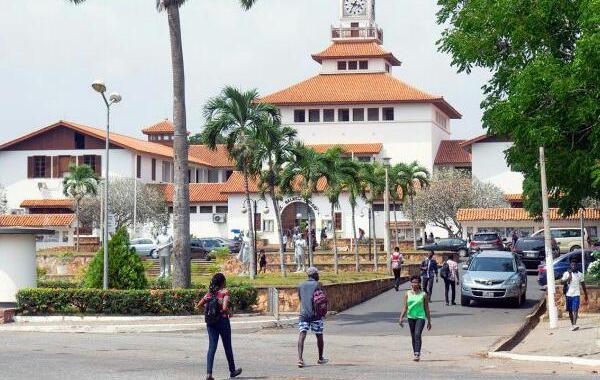A Deputy Ranking Member of Parliament’s Education Committee says that the proposal to wean public tertiary institutions off government payroll “will invariably restrict access to tertiary education.”
Dr Clement Apaak says implementing the proposal will create a financial barrier, which would add to the existing infrastructure challenges and “prevent the poor and marginalised from accessing tertiary education.”
Finance Minister Ken Ofori-Atta explained on Thursday, March 24, that the decision forms part of government’s medium-term measures to address the challenges confronting the economy.
He noted that the institutions would be provided with a fixed amount as a “block grant” to undertake their operations.
But Clement Apaak has expressed disagreement with the government and has called for a complete scrap of the proposal.
“For tertiary institutions under the prevailing circumstances to raise the needed resources to pay teaching and non-teaching staff, it will likely require passing a chunk of the bill to students, resulting in higher school fees.
“Essentially, what the Minister is saying is that government intends to no longer shoulder the cost of paying lecturers and staff of the tertiary institutions. Higher fees will be to the detriment of poor students who are even struggling to pay the current fees,” he said in a statement on Monday.
Free SHS
The Builsa South legislator argued that making public tertiary institutions fee-paying will be a shot in the foot, saying it will erode any gains that the Free Senior High School policy intended to achieve.
He contended that President Akufo-Addo’s earlier consideration to make tertiary education free will not make any sense should the government go ahead with the new proposal.
“In any case, why would government increase access by making secondary education free, and propose to restrict access by essentially making the cost of obtaining tertiary education by beneficiaries of free secondary education exorbitant?
“For a government that believes that parents cannot afford to pay school fees for their wards at a senior high level to now turn around to demand full fee-paying from same at the tertiary level, is to say that there is lack of appreciation of the whole policy intervention at the secondary level.
“It is in light of the above that government must rethink any measures that are intended to prevent the poor from having access to educational opportunities at the tertiary level,” he added.
What did Akufo-Addo say?
Speaking at the Global Education Summit held in the United Kingdom on July 29, 2021, President Akufo-Addo said: “For now, what has been put in place is a system where students at the tertiary level are provided loans while in school to help them cater for their needs, but we’re considering free Tertiary education too.”
He, however, did not disclose further details about how that would have been implemented.
Touching on the Free SHS policy spearheaded by the governing New Patriotic Party (NPP), the President noted that additional resources will be allocated to address challenges relating to increasing access and inadequate infrastructure limiting the programme's effects.
“It’s one of the highest on the continent, and we intend to ramp it up even more. The policy has reversed decades of exclusion, which denied, on the average, one hundred thousand young men and women, annually, entry to senior high school education because of the poverty of their parents,” the President stated.
Latest Stories
-
Bawumia’s music streaming app or Mahama’s pay-per-view TV channel?
5 mins -
Karpowership Ghana empowers 40 Takoradi Technical University students with scholarship
7 mins -
We expect significant reduction in prices of petroleum products in coming weeks – CEO AOMC
20 mins -
Betway Africa offers once-in-a-lifetime ‘Play-on-the-Pitch’ experience at Emirates Stadium
29 mins -
I coined the term ‘hype man’ in Ghana – Merqury Quaye
35 mins -
Vasseur questions ‘strange momentum’ of Formula One race director change
57 mins -
“I am disappointed in Kojo Manuel” – Merqury Quaye on “no tie” comment
57 mins -
Nana Kwame Bediako; The beacon of unity
59 mins -
Western Region: NDC youth wing embarks on phase 2 of ‘retail campaign’
1 hour -
Action Chapel International holds annual Impact Convention in November
1 hour -
Jana Foundation urges young women to take up leadership roles
2 hours -
All set for Joy FM Prayer Summit for Peace 2024
2 hours -
Managing Prediabetes with the Help of a Dietitian
2 hours -
Joy FM listeners criticise Achiase Commanding Officer’s election comment
2 hours -
Legal Aid Commission employees threaten strike over poor working conditions
2 hours

